Dubbo Doctor Khyarne Biles slams Covid misinformation
An indigenous Dubbo doctor has gone viral with her stories from the Covid frontline. She is just one of a new generation of Aboriginal experts stepping up to encourage communities in Covid-hit regional NSW to get vaxxed.
Dubbo News
Don't miss out on the headlines from Dubbo News. Followed categories will be added to My News.
A new generation of Aboriginal health experts are stepping up to inspire, educate and motivate Covid-hit communities in western NSW.
As one of about 400 Aboriginal or Torres Strait Islander doctors in Australia, Dubbo emergency doctor and proud Ngemba-Wiradjuri woman, Khyarne Biles, is using her experience and voice to help avert a potential Covid “disaster” in regional NSW’s indigenous communities.
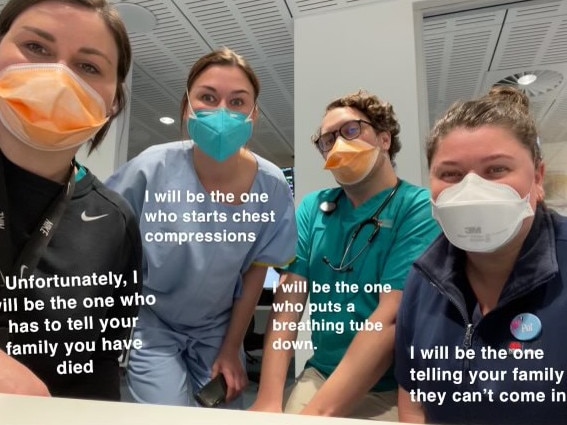
“This is a potential disaster, this has the ability to potentially get through communities and have significant impacts on some of our smaller communities, almost on the verge of potentially even wiping out some of our smaller communities,” Dr Biles says.
“When Covid first hit it wasn’t really a reality because it wasn’t here, but now everyone’s going to know someone that’s got Covid or has had Covid.
“We want people to get a really good grip that it’s here, it’s real and people are going to get sick.”
In less than three weeks since Sydney’s Delta outbreak spread west, more than 700 cases of Covid have been confirmed across the Western and Far West Local Health districts.
More than 500 of the cases are in Dubbo, but many smaller and largely indigenous communities with tiny hospitals and few specialist medical services have been hit hard too.
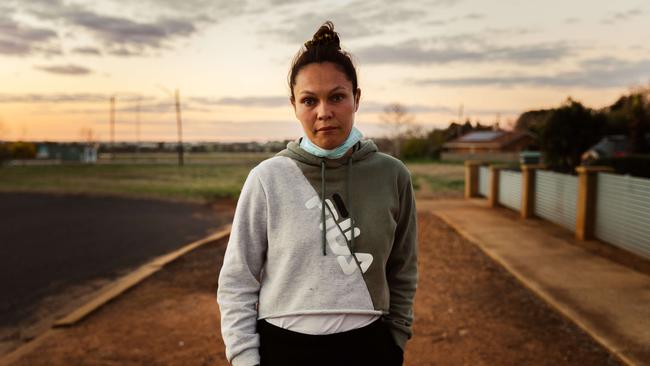
In the outback town of Wilcannia, about 10 per cent of the town’s 549 residents have tested positive.
Dr Biles and many of her colleagues work in, or have family or social connections to communities across western NSW.
Fearing, but expecting a likely rise in Covid infections, Dr Biles and team got talking during a night shift early on in the outbreak, about how they could reach out to communities at risk.
“We’ve all got links to these tiny communities, these are our families and friends that live there,” she said.
“We’re sort of trying to use other means to get the message out that Covid is real and people you know and trust are telling you this because we’re here and we’re seeing it.”
After sharing a series of raw but confronting Facebook posts about life on the Covid frontline, the need for empathy and the potential experience Covid patients could have with her team, Dr Biles’s messages went viral.
Hundreds of people have shared her posts and paid tribute to her direct, heartfelt pleas for Covid to be taken seriously and treated appropriately with approved vaccines.
“We’re all very, very thankful,” Dr Biles said.
“The idea that we’re going to get rid of Covid is long gone, we’re not going to get rid of Covid but what we need to do is ensure that when the spread of Covid through communities is happening, as it is now, that we have people that are not requiring hospital admissions.
“We want people to be vaccinated so they can be at home to manage the condition, as opposed to being unwell and needing hospitalisation because that’s where we are really going to fall behind and struggle because healthcare systems are not designed to deal with this kind of influx of critically ill people.”
Fully vaccinated herself with two doses of the AstraZeneca, Dr Biles, 30, said misinformation, fear, historical distrust and supply shortages had helped create a gap between indigenous and non-Indigenous Covid vaccination rates.
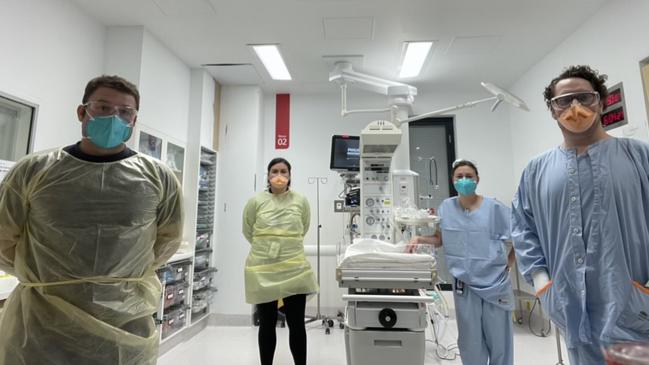
According to Australian Government Department of Health data as at August 30, only 13.77 per cent of indigenous people in the Far West and Orana region of NSW were fully vaccinated. For the general population that figure was 27.2 per cent.
“There’s a lot of misinformation out there, some people don’t think it’s real and if they don’t think it’s real they’re certainly not going to take on board the idea of vaccination,” Dr Biles said.
“We’re seeing other people thinking vaccination is about putting chips in you and it’s a government control system or another way for them to infect people. There’s a lot of stuff out there that’s really baffling, unfortunately what that means in our vulnerable communities is that we’re now starting to see we’ve got low uptake of the vaccinations and quite significant spread of Covid.”
Dr Biles said it was “scary to know we have something that can potentially prevent that and it’s still not being taken up” as governments and health professionals deliver more vaccines, accommodation for people requiring isolation and tailored testing services which cater to specific community needs.
“When we go all the way back to colonisation we see that there’s been distrust with the government … there’s still this idea that we’re not on the same team,” she said.
“We’re trying to form relationships to build trust, which just takes time and unfortunately when there have been issues or breakdown in that trust in pre-Covid times, when something like this happens it makes it hard to bridge that and build trust in a very quick time frame.
“We don’t have time to build that strong trust with the communities and that makes it a bit more challenging.”
When it comes to vaccine, Dr Biles is adamant “any vaccination is better than no vaccination”.
“You may still get Covid, we’re not saying you won’t get Covid, what we’re saying is if you’re fully vaccinated your risk of requiring hospitalisation or an ICU admission is significantly less.
“We’re talking up in the high 80s to 90 per cent in terms of reduction of your need to be in hospital, let alone an intensive care unit.”
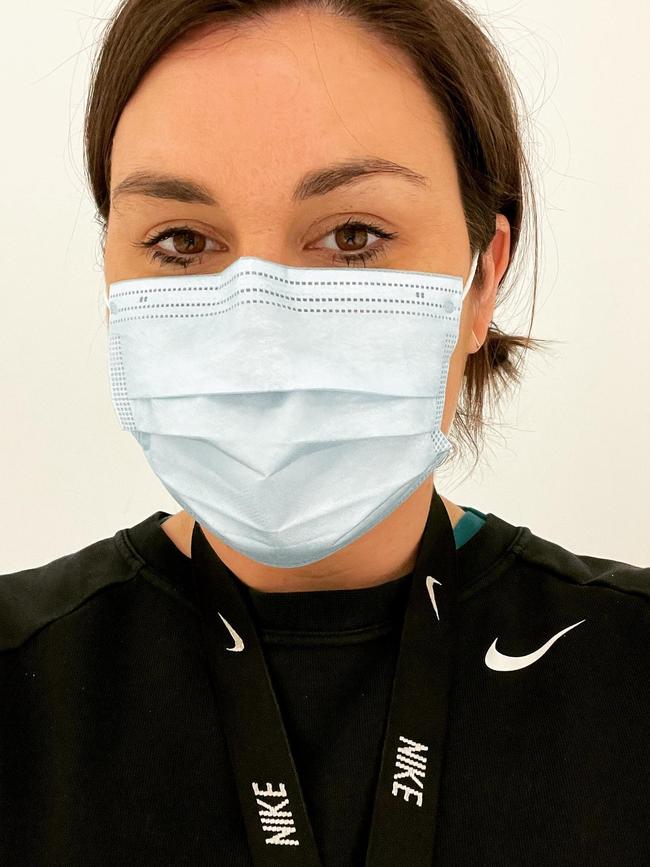
In her latest Facebook post Dr Biles encouraged people to be empathetic about the plight of others and consider those less at greater risk.
“When I see people who are more fortunate that have this whole idea that it’s just a virus and you’ll have a runny nose for two weeks … the reality is for others it’s not fine and we’re reliant on everyone to stop this spread from getting into vulnerable patients.
“You might be okay but there’s a lot of people who won’t be okay and unfortunately right now the people that are not okay are our indigenous communities, our vulnerable people.
“Prior to this we used to be talking about healthcare workers as a frontline defence, but we’re not anymore, we’re actually relying on the community to be our frontline defence to stop this.”
Dr Biles said while working during a once-in-a-generation pandemic was challenging for everyone, she was proud to be working alongside a health team who were passionate about being there for the community in its greatest time of need.
“I work at the hospital one week and I pick up shifts for other organisations in my week off just to help bridge gaps … a lot of people are doing that, they’re at the hospital working and then they’re working for vaccination rollout clinics in their spare time trying to engage the community,” she said.
“We’re turning up, we’re filling in gaps when the goalposts change we move with them. On a daily basis how we approach this is changing.”
It’s not just doctors and nurses going above and beyond during the western NSW outbreak, pharmacists who are finally able to vaccinate have also taken a leadership role in communities.
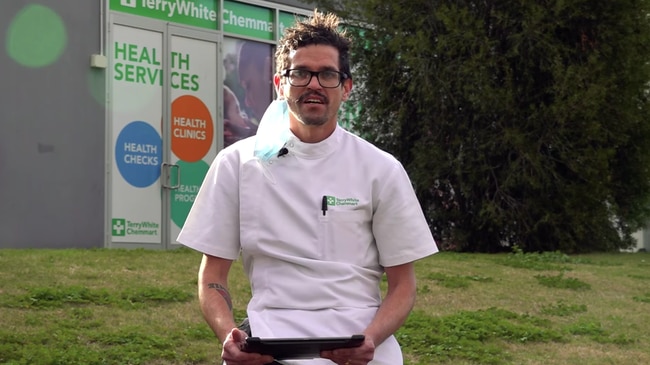
Wiradjuri man and Dubbo pharmacist Kaail Bohm has been blitzing local airwaves and visiting Aboriginal community members to dispel myths about the AstraZeneca vaccine and Covid.
“It is a fantastic vaccine and it save lives,” he said in a video distributed by Dubbo Regional Council.
“The vaccine is all about protecting you, your loved ones and getting us back to a normal life post Covid as best we can.
“Vaccinating is important, whether it’s Covid, influenza, whooping cough or polio. Vaccines have helped us as a community, as a people, become stronger.
“Roll up your arm, get in line and get vaccinated. Whether that vaccine is AstraZeneca, Pfizer or Moderna that is coming, it doesn’t matter but simply get vaccinated sooner rather than later.




